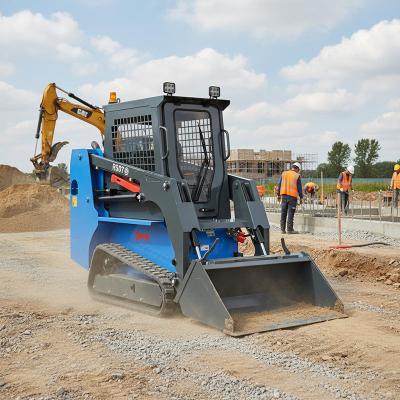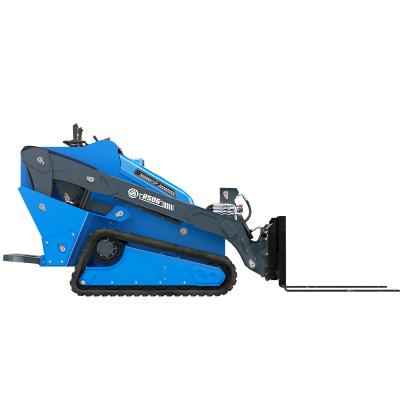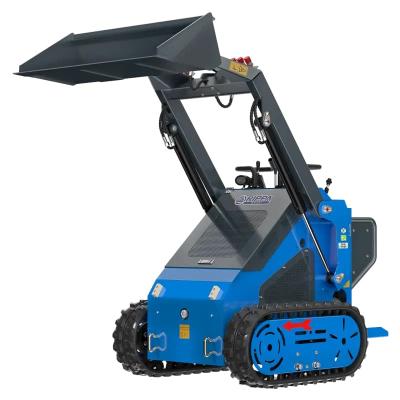In today's fast paced world, the way we use technology is constantly evolving. One of the most significant trends we've seen is the increasing demand for minicomputers. This demand is largely driven by the need to save space without sacrificing performance. In this article, we'll explore why limited space is becoming a crucial factor in the popularity of minicomputers and how these devices are changing the way we approach computing. From urban living dynamics to the rise of minimalism, the factors contributing to this trend are as diverse as they are influential.
The Rise of Minicomputers
Minicomputers, often referred to as mini PCs, have gained popularity due to their compact size and impressive capabilities. These devices are smaller than traditional desktop computers but still offer powerful performance. They have become an attractive option for both personal and professional use, especially in environments where space is at a premium. The rise of minicomputers marks a significant shift in the computing landscape, reshaping how we perceive and utilize technology in our daily lives.
What are Minicomputers?
Minicomputers are small, versatile computing devices designed to perform a variety of tasks. They can handle everything from basic word processing and web browsing to more complex applications like video editing and gaming. Despite their small size, minicomputers pack a punch, often featuring powerful processors and ample storage. The evolution of minicomputers has seen them transition from niche products to mainstream devices, appealing to a wide range of users due to their practicality and efficiency.
Moreover, minicomputers often come equipped with the latest technology, ensuring they remain relevant as software demands evolve. Their compact nature doesn't detract from their ability to perform high-demand tasks, which is a testament to the advancements in microchip technology. The adaptability of minicomputers is further enhanced by their compatibility with a wide range of peripherals, making them a flexible choice for both tech enthusiasts and casual users alike.
The Appeal of Mini PCs
The appeal of mini PCs lies in their ability to fit into tight spaces while still delivering robust performance. This makes them ideal for use in small apartments, offices, and even classrooms. Additionally, their portability allows users to easily move them from one locati0n to another, adding to their versatility. Their small footprint doesn't just save space; it also contributes to a clutter-free environment, which can enhance productivity and reduce stress.
For those who frequently travel or need to relocate their workspace, minicomputers provide the convenience of mobility without the bulk of traditional desktops. This portability doesn't come at the expense of performance, as many mini PCs boast high processing power and efficient multitasking capabilities. Furthermore, the sleek and modern designs of these devices often complement contemporary interiors, making them a stylish choice for tech-savvy users.
The compact design of mini PCs also often results in less noise and heat output, which can be a significant advantage in confined spaces. This quiet operation is particularly beneficial in environments like bedrooms or shared office spaces, where excessive noise can be a distraction. As technology continues to advance, we can expect the appeal of mini PCs to expand further, attracting even more users seeking efficient and space-saving computing solutions.
Limited Space: The Driving Force
As urban areas become more crowded and living spaces shrink, the need for compact technology solutions has become more pronounced. Minicomputers offer a practical solution to this problem, allowing users to maximize their space without compromising on functionality. The demand for these space-efficient devices is not just a passing trend but a response to a fundamental shift in how we live and work in increasingly dense environments.
Urban Living and Space Constraints
In many cities around the world, living spaces are becoming increasingly compact. Apartments are getting smaller, and office spaces are designed to accommodate more employees in less room. This trend has led to a growing demand for technology that can fit into these limited spaces. Minicomputers are perfectly suited to meet this need, providing powerful computing capabilities in a small package.
Urbanization has accelerated the transformation of residential and commercial spaces, with a significant emphasis on efficiency and functionality. As more people migrate to urban areas, the resulting high population density has made it essential to utilize every square foot wisely. Minicomputers, with their compact design, fit seamlessly into this urban puzzle, offering a solution that doesn't compromise on technology or convenience.
Moreover, the high cost of real estate in urban centers further accentuates the need for space-saving solutions. Smaller living and working spaces necessitate a reevaluation of how technology is integrated into our environments. In this context, minicomputers represent a forward-thinking approach, aligning perfectly with the needs of modern urban dwellers.
The Role of Minimalism
Minimalism has become a popular lifestyle choice for many, emphasizing the idea of living with less to achieve more. This philosophy extends to technology, where users are seeking devices that offer essential features without unnecessary bulk. Minicomputers align with this trend, offering sleek designs that complement minimalist environments. The minimalist movement, with its focus on simplicity and functionality, has found a natural ally in the form of minicomputers.
The aesthetic appeal of minicomputers is undeniable, with their clean lines and unobtrusive presence enhancing the overall feel of a space. For individuals who prioritize aesthetics and simplicity, these devices offer a perfect blend of form and function. By reducing physical clutter, minicomputers contribute to a mental clarity that can enhance focus and creativity.
Furthermore, the minimalist approach to technology encourages users to focus on what truly matters, shedding the excess that often accompanies traditional computing setups. This shift not only simplifies the user experience but also promotes a sustainable approach to technology consumption, aligning with broader environmental goals.
Flexible Workspaces
In addition to urban living and minimalism, the evolution of flexible workspaces has been a significant factor driving the demand for minicomputers. As more companies embrace remote work and hot-desking models, the need for portable, efficient computing solutions has increased. Minicomputers provide the perfect answer, enabling employees to work effectively from virtually any locati0n.
The rise of co-working spaces and home offices has further highlighted the advantages of compact computing devices. These environments require technology that can adapt to various settings and be easily transported as needed. Minicomputers, with their lightweight design and robust performance, offer the flexibility required for modern work scenarios.
Moreover, the ability to quickly set up and dismantle a minicomputer workstation makes them ideal for dynamic work environments. This adaptability not only enhances productivity but also supports the ongoing trend towards more personalized and flexible working arrangements.
Advantages of Minicomputers
Minicomputers offer several advantages that make them an appealing choice for a wide range of users. Let's take a closer look at some of these benefits. From cost savings to environmental considerations, the advantages of minicomputers are multifaceted and compelling.
Cost-Effectiveness
Minicomputers are often more affordable than traditional desktop computers. This cost-effectiveness makes them an attractive option for budget-conscious consumers and businesses looking to equip their employees with reliable technology without breaking the bank. The initial investment in a minicomputer is typically lower, and the long-term savings on energy costs further enhance their appeal.
For small businesses and startups, the ability to equip an entire team with powerful computing tools without significant financial strain is invaluable. This affordability doesn't come at the expense of performance, as many minicomputers boast the latest technology and capabilities. The value proposition of minicomputers is clear, providing top-tier performance at a fraction of the cost of larger systems.
Additionally, the competitive pricing of minicomputers allows consumers to allocate resources to other essential areas, such as software or peripherals. This financial flexibility can be particularly beneficial for students, freelancers, and small business owners who need to maximize their technology investment.
Energy Efficiency
Many minicomputers are designed with energy efficiency in mind, consuming less power than their larger counterparts. This not only helps reduce electricity bills but also contributes to a smaller carbon footprint, making them an environmentally friendly choice. The emphasis on energy efficiency aligns with broader societal goals of sustainability and responsible resource management.
The reduced power consumption of minicomputers is achieved through advanced engineering and the use of energy-efficient components. This design philosophy not only benefits the environment but also enhances the longevity of the devices by reducing heat output and wear on internal components. For users conscious of their environmental impact, minicomputers offer a practical and responsible choice.
Furthermore, the energy efficiency of minicomputers supports the growing trend towards green technology and eco-friendly practices. As more consumers and businesses seek to reduce their carbon footprint, the demand for sustainable computing solutions is likely to increase, further driving the popularity of minicomputers.
Versatility and Customization
Despite their small size, minicomputers offer a high degree of versatility. They can be customized to suit individual needs, with options for upgrading memory, storage, and other components. This flexibility allows users to tailor their devices to specific tasks or preferences. The ability to customize a minicomputer ensures that it remains relevant and capable as technology advances and user needs evolve.
The modularity of many minicomputers means users can easily expand their capabilities without needing to invest in an entirely new system. This adaptability is a significant advantage in a rapidly changing technological landscape, where new software and applications constantly emerge. Whether used for gaming, professional work, or multimedia applications, minicomputers can be configured to meet diverse demands.
Additionally, the open architecture of many minicomputers allows for seamless integration with a wide range of peripherals and accessories. This interoperability enhances their functionality and ensures that users can build a computing environment that perfectly suits their requirements.


